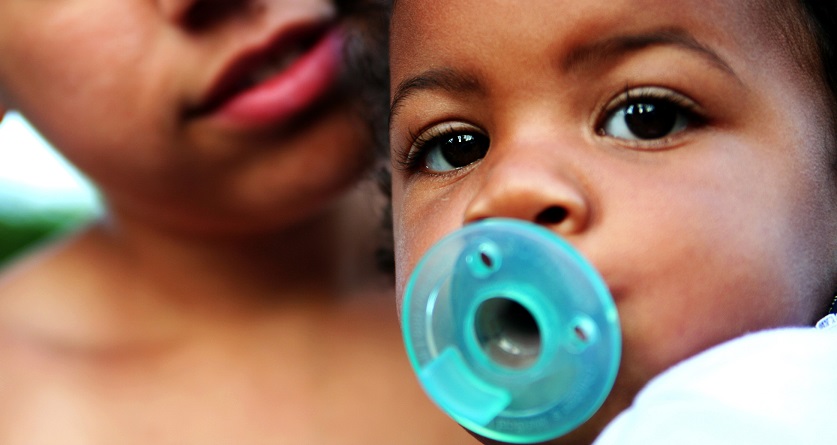The birth of a newborn brings joy and good memories to not only the parents but also to their friends, workmates, and communities they live in. This isn’t any different from a colleague who delivered a bouncing baby a few weeks back. Of recent, I paid her a visit, and through our discussion, I realized her biggest concern as a first-time mother is watching her one and only baby go through bouts of hiccups. She also reported that some of her in-laws, friends and relatives have advised her to give the baby drops of water when she develops hiccups or puts some piece of grass on her fore-head, or turn the baby upside down etc.
As a Midwife and Women’s’ Health Specialist, I knew that we still have a long way to go if no right information and intervention on hiccups is provided to her and other mothers plus the entire community. Hiccups are caused by the involuntary contractions of the body’s diaphragm muscles, and each time the diaphragm contracts, the muscles around the vocal cords close as well, which is what causes the characteristic “hic” sound of hiccups. Interestingly, other mammals like dogs and cats among others also hiccup. Newborns tend to develop hiccups more often than older children and adults.
Here are some of the most common causes of hiccups in babies;
Eating too fast:
Just as eating too quickly can cause adults to hiccup, the same thing can happen with babies. This can happen when one is using a fast flow nipple on the baby’s bottle, or if one is dealing with a forceful milk let-down while breastfeeding. Also, babies who are starting to eat solids can get the hiccups if they are fed too much at once or given meals that are too large for their digestive system to handle.
Needing to burp:
A one known researcher called Daniel Howes proposed that hiccups are a baby’s way of clearing excess air out of their stomach or essentially burping themselves. Truly, sometimes hiccupping doesn’t work and your baby might need a little help getting that extra air out, hence a need to be burped.
Swallowing air:
Swallowing excess air can bring on hiccups! This can happen during a feeding, like when the baby is sucking on a bottle nipple with no milk in it, or if the latch during breastfeeding isn’t deep or secure enough.
Overfeeding:
Eating too much at once can result in hiccupping. It’s recommended that babies are fed just a small volume of formula at once, giving the baby a break, holding them upright to digest, burping them, and then feeding them the rest of their bottle. It’s best to allow your baby to dictate how much they eat at once, which is demand feeding. Giving your baby breaks to digest and not continuing to feed if your baby seems satisfied can help with problems like excessive hiccupping
Gastroesophageal Reflux:
Sometimes newborn hiccups, along with burping, can be a sign of gastroesophageal reflux, which is a very common and generally treatable syndrome found in babies. Basically, a baby’s digestive system is less developed at first, which can cause them to regurgitate stomach acid, and this can cause hiccups, belching, burping, and general discomfort.
However, in case one suspects that their baby is dealing with gastroesophageal reflux, it’s best to take them to a nearby health facility to be seen by a healthcare provider for further assessment, diagnosis and management where necessary.
As long as your hiccupping baby is comfortable, and is not distressed, there is nothing which needs to be done about hiccupping. Hiccupping is very normal in babies and usually decreases in frequency after their first few months or the first year of life.
However, if your baby seems uncomfortable, the hiccupping is accompanied by excessive crying, spitting up, or belching or if the hiccupping is interfering with their sleep, naps, or feedings, then, there are a few things to try to stop the hiccups from happening. These include;
- If breastfeeding, burp your baby between breasts, and if bottle feeding, make sure to take breaks after your baby has ingested a few ounces, then, burp your baby and hold your baby upright for a minute or two.
- Sit your baby upright after feeds: This can help them digest their milk and decrease hiccupping, burping, and other digestive discomforts
- Avoid over-feeding your baby, avoid feeding your baby too quickly, and do not allow your baby to swallow excess air
- Offer your baby a pacifier: Sometimes, this can help relax the baby’s diaphragm and decrease or eliminate their hiccupping, and treat your baby’s gastroesophageal reflux.
The author is; Lilian Nuwabaine Luyima; BSc Nurse & MSN-Midwife & Women’s’ Health Specialist & Heroes in Health Award winner-Midwife of the year 2021
If you would like your article/opinion to be published on Uganda’s most authoritative news platform, send your submission on: [email protected]. You can also follow DailyExpress on WhatsApp and on Twitter (X) for realtime updates.



